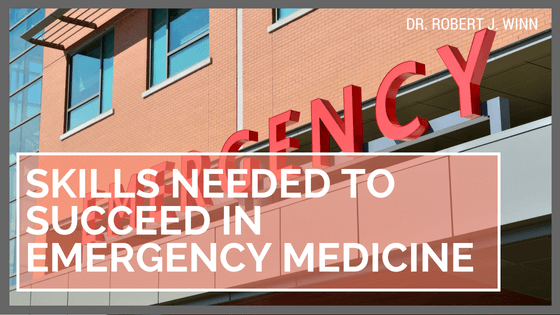While all medical specialties result in saving lives, in no other specialty but emergency medicine do you get to have a hand in saving lives every single day. If you’re considering specializing in emergency medicine, you need to possess these skills for success.
Quick thinking
Emergency doctors aren’t seeing patients with conditions; they’re seeing patients with symptoms. You need to be able to think on your feet about what the symptoms are consistent with, what the best course of treatment is. They need to be able to hone in on a problem and make quick and aggressive decisions about how to solve it.
Calm under pressure
An emergency doctor needs to be able to tune out all of the noise and commotion to make proper diagnoses. Emergency rooms are fast-paced, and everyone is firing on all cylinders at all times. But a successful emergency doctor needs to be able to stay level-headed and not let that influence their work. If a patient is in critical condition, a good emergency doctor needs to be able to stay collected to help.
Knowledge
All doctors need to be knowledgeable about medicine and various conditions, but in most medical specialties, you’ll only be focusing on one area of illnesses. In emergency medicine, you need to have strong knowledge of all conditions and their treatments. An emergency doctor will see patients from all over the board and needs to be able to know how to help all of them.
Emotional Intelligence
It’s not just necessary to obtain medical knowledge; a good emergency doctor needs to possess emotional intelligence as well. They’ll deal with anxious and worried patients and their families, and need to be able to calm and reassure them. They have to be able to take charge of a situation and make their patients feel at ease.
Listen
Perhaps the most important skill an emergency doctor needs to possess is the ability to listen. An emergency doctor needs to really listen to their patient and understand their symptoms entirely before they’re able to treat them. Patients are trying to communicate what is wrong with them, and it’s up to an emergency doctor to listen to help. Patients aren’t the only person a doctor should be listening to. Listen to the concerns of the nurses, as they often know the patient the best. Listen to the paramedics who brought the patient in, as they know what the condition of the patient was before their arrival at the hospital. In short, listen to everyone and catalog the information as best you can.


